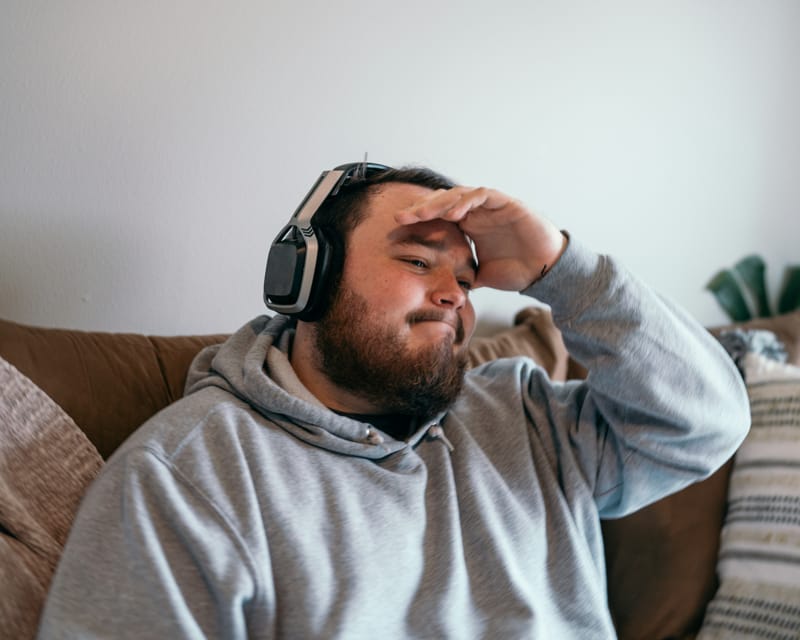Long hours of gaming can take a toll on both body and mind. From eye strain and brain fog to irritability and declining performance, gamer burnout is real—and increasingly common. This article explores the causes and symptoms of screen fatigue and offers practical strategies for recovery, including screen break routines, sleep hygiene, mindfulness practices, and nutrition. By recharging properly, players can boost focus, improve reaction time, and prevent long-term fatigue.
What Is Gamer Burnout?
Gamer burnout is a state of mental and physical exhaustion caused by extended exposure to digital environments with little recovery. It’s most common among competitive gamers, streamers, and those who game for long sessions without structure.
Symptoms often include:
- Eye strain and blurred vision
- Mental fatigue or brain fog
- Mood swings or irritability
- Difficulty concentrating
- Slower reaction times and poor decision-making
Much of this stems from overstimulation, lack of movement, and limited off-screen recovery.
Fight Eye Strain with the 20-20-20 Rule
A major contributor to screen fatigue is visual overload. Staring at a monitor for hours tightens the muscles in your eyes, reduces blinking, and causes dryness and discomfort.
To reset visual focus, follow the 20-20-20 rule: every 20 minutes, look at something 20 feet away for 20 seconds. This relaxes the ciliary muscles in your eyes and prevents digital eye strain.
Pair this with blinking exercises, screen filters, and ambient lighting to further reduce eye-related fatigue during long gaming sessions.
Source: American Optometric Association
Build Breaks into Your Gaming Sessions
Even with competitive goals, recovery is essential for performance. Set a timer for longer breaks every 60–90 minutes and use this time to:
- Stretch or walk
- Step outside for sunlight
- Hydrate and refuel
- Do quick breathing or posture resets
These actions activate the parasympathetic nervous system, helping your brain and body reset so you return to gameplay with restored mental clarity.
Prioritize Sleep to Restore Cognitive Performance
Late-night gaming disrupts circadian rhythms, which govern memory consolidation, decision-making speed, and emotional regulation. Poor sleep compounds burnout by impairing reflexes and mental stamina.
To improve sleep hygiene:
- Use blue light filters or glasses in the evening
- Avoid screens 30–60 minutes before bed
- Stick to a consistent sleep-wake schedule
- Keep your sleep environment cool, quiet, and dark
Consistent, high-quality sleep can help rebuild depleted cognitive resources and protect long-term mental health.
Source: Sleep Foundation
Use Mindfulness to Reset Between Sessions
Mindfulness isn’t just for stress relief—it’s a powerful tool for mental recovery and emotional regulation. Practices such as:
- Box breathing (inhale 4s, hold 4s, exhale 4s, hold 4s)
- Guided meditation through apps like Calm or Insight Timer
- Mindful walking without music or screens
…help reduce stress hormone levels and restore mental balance. Just 5–10 minutes between sessions can make a big difference in reducing irritability, improving patience, and avoiding tilt.
Source: Harvard Medical School
Fuel Your Brain with Hydration and Nutrients
Cognitive fatigue often comes from more than screen time—it also results from dehydration and poor nutrition. Common symptoms like sluggish thinking or poor focus can stem from skipped meals or not drinking enough water.
Support your brain with:
- Water throughout the day, not just energy drinks
- Complex carbs like oats and whole grains for sustained energy
- Omega-3s (e.g., salmon, walnuts, flaxseed) for brain health
- Magnesium and B vitamins to aid neurotransmitter function
Eating intentionally between sessions improves both short-term alertness and long-term resilience.
Source: Harvard Health
Conclusion: Reset, Refocus, Return Stronger
Burnout is not a badge of honor—it’s a warning sign. If you’re feeling mentally drained, emotionally reactive, or physically off during or after gaming, your body is asking for recovery.
Implementing structured breaks, improving sleep habits, practicing mindfulness, and supporting your body with the right fuel can transform burnout into renewed focus. Sustainable gaming isn’t about grinding nonstop—it’s about playing smarter, not harder.
Citations
- American Optometric Association. “Computer Vision Syndrome.” AOA.org, https://www.aoa.org/healthy-eyes/eye-and-vision-conditions/computer-vision-syndrome
- Sleep Foundation. “Sleep Hygiene.” SleepFoundation.org, https://www.sleepfoundation.org/sleep-hygiene
- Harvard Medical School. “Mindfulness Meditation Improves Wellness.” Harvard Health Publishing, https://www.health.harvard.edu/mind-and-mood/mindfulness-meditation-improves-wellness
- Harvard Health Publishing. “Nutritional Psychiatry: Your Brain on Food.” Harvard Health, https://www.health.harvard.edu/mind-and-mood/nutritional-psychiatry-your-brain-on-food


